Pet Poison Awareness
Toxic Substances

Our homes contain dozens of common items that may pose a danger to our pets. Here are some common pet poison awareness tips every pet owner should be aware of:
Over-the-counter human anti-inflammatory medications such as acetaminophen, ibuprofen, herbal and nutraceutical supplements. Just because something is safe for you does not mean it is safe for your pet.
Human prescription medications, including antidepressants, muscle relaxants, pain medication, albuterol inhalers, and blood pressure medications. Sometimes we accidentally drop a pill when getting ready to take it ourselves. Pets can gobble it up thinking it was a treat.
Overdoses of veterinary medications, especially Rimadyl, Deramaxx, Previcox, Metacam and joint supplements, can cause vomiting, diarrhea, and kidney or liver failure. It is important for pets to receive the dose prescribed by your veterinarian. Often poisoning scenarios occur when one pet eats the entire bottle of their medication or a housemate’s medication.Please take special care to keep all medications where pets cannot steal them from the counter. This is especially true for flavored chewable medications such as Rimadyl, Deramaxx, and Baytril.
Over-the-counter flea and tick products containing permethrin. This insecticide is toxic to cats and will result in elevated body temperature, muscle tremors, hyperexcitability, drooling, and seizures.
People foods can cause several health issues in your pet. Chewing gum and candy containing the sugar substitute xylitol can cause hypoglycemia and acute liver failure. Grapes, raisins, and currants should never be fed to dogs because they can cause acute kidney failure. Chocolate, coffee, and caffeine cause vomiting, diarrhea, dangerously high heart rates, seizure, and death at high doses. Remember, the darker the chocolate the more toxic it is, with bakers chocolate being the worst. Macadamia nuts cause nervous system and gastrointestinal signs in dogs. Chronic ingestion of garlic and onions can result in dangerously low red blood cell counts. Avocados contain a toxin that causes vomiting and diarrhea in dogs. However, in birds and rodents, avocado ingestion causes deadly fluid buildup in the lungs so avocados should never be fed to birds or pet rodents. Ingestion of uncooked dough (bread dough, pizza dough) poses a problem because the yeast will cause continued swelling in the stomach and intestinal tract resulting in pain and putting pets at risk for rupture of the gastrointestinal tract. Raw meat, eggs, and bones should not be fed to pets. Raw meat may contain harmful bacteria and other parasites. Bones, either cooked or raw can splinter and cause lethal injury to the esophagus and gastrointestinal tract leading to peritonitis and death.
Toxic plants. Easter is coming up and Easter lilies are extremely toxic to cats – causing kidney failure and death. Other than Easter lilies you should watch out for Sego Palms, Dumb Cane (dieffenbachia), tulip bulbs, marijuana, amaryllis, azaleas, rhododendron, oleander, castor bean, and yew, among others. Check out this website for a list of toxic and non-toxic plants. http://www.aspca.org/pet-care/animal-poison-control/toxic-and-non-toxic-plants.
Rodenticides. Depending on which type is ingested, pets are at risk for internal bleeding, kidney failure, or seizures. If you believe your pet has ingested rat, mouse or gopher bait you need to seek veterinary care as soon as possible. Please have a roommate or family member try to find the original packaging while you transport your pet for care. These different types of rodenticides can have very different mechanisms of action and require different treatment methods.
Household products including cleaners, batteries, glue, coins, and other items. Some are corrosive causing damage to the intestinal tract. Others can cause obstruction, acute anemia, or kidney problems.
If you have any reason to suspect your pet has ingested something toxic, please contact your veterinarian or call one of the Animal Poison hotlines listed below. If your veterinarian is unavailable, Advanced Veterinary Specialists, located at 414 East Carrillo in Santa Barbara is open 24/7 and can be reached at (805) 729-4460)
ASPCA Animal Poison Control Center: (888) 426-4435
Pet Poison Helpline: (800) 213-6680
For additional information:
